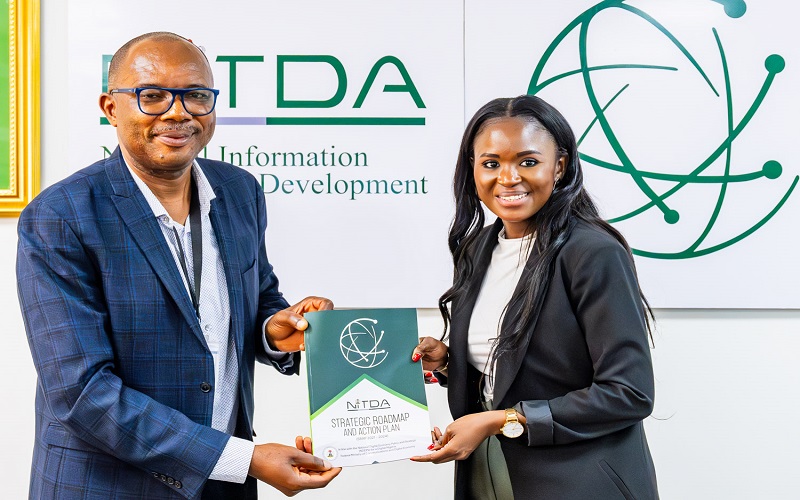The Director General of the National Information Technology Development Agency (NITDA) Kashifu Inuwa Abdullahi CCIE,in Nigeria has pledged to work closely with Ms. Salima Bah, Sierra Leone’s Minister of Communications, Technology, and Innovations, in order to put into action the “Forge Strategic Partnerships and Collaboration” pillar included in the Strategic Roadmap and Action Plan (SRAP 2.0 2024-2027).
Dr Aristotle Onumo, Director of the Corporate Planning and Strategy Department and a representative of the DG, conveyed NITDA’s commitment to encouraging innovation without stifling it, and he highlighted the role of innovation, stakeholder engagements, and co-creation in developing NITDA’s regulatory agenda.
Read also: Kyshi launches cross-border platform for African online businesses
What is attainable
Inuwa went on to explain how each ministry’s Digital Transformation Working Group came to be, and she stressed the importance of cooperation among different groups inside and outside government. These government entities will work together to ensure that all their policies, frameworks, and guidelines are up-to-date and relevant.
The DG emphasised the significance of stakeholder engagement and understanding their needs, problems, and fears while explaining NITDA’s approach to regulating information technology matters. He stressed how critical it is to craft policies and legislation that adequately handle these issues.
Inuwa, while discussing service delivery monitoring, urged government agencies to submit IT plans every year to make sure they align with the Agency’s goals and emphasise how the Agency uses IT clearance to enforce standards quickly.
Minister Salima Bah spoke about how Africa can’t just be a consumer of new technologies like blockchain and artificial intelligence; the continent must work together to advance these fields.
After thinking back on the two days of the engagement, Bah was grateful for the chance to pick the brains of NITDA officials about technology clearance and compliance, digital development, and policy implementation.
According to the minister, the meeting between NITDA and the Sierra Leonean Ministry of Communications, Technology, and Innovations is a major step forward in promoting digital innovation across Africa and facilitating cross-border collaboration.
Digital inclusion in Africa
The potential for driving economic growth and fostering regional development is enormous if digital innovation is promoted across Africa and cross-border collaboration is made easier. In order to tackle shared problems and seize new opportunities, African nations can foster innovation and entrepreneurship.
Startups and tech entrepreneurs can benefit greatly from the establishment of regional innovation hubs and incubators, which can offer them guidance, resources, and support. Knowledge sharing, skill development, and the exchange of ideas and best practices can all flourish in such centres of cross-border collaboration.
Expertise, investment, and technology resources can be more easily shared when public and private sectors, academic institutions, and international organisations work together. Regional collaboration and innovation can be fostered through initiatives like cross-border funding mechanisms, innovation challenges, and joint research programmes.
Additionally, tech startups and businesses can experience seamless cross-border operations by harmonising regulatory frameworks and promoting digital infrastructure development. This effort includes online payment system standardisation, better internet access, and removing regulatory hurdles to investment and trade.
To drive sustainable development, encourage economic integration, and improve the lives of its people across the continent, Africa can leverage the transformative power of technology by promoting digital innovation and facilitating cross-border collaboration.




